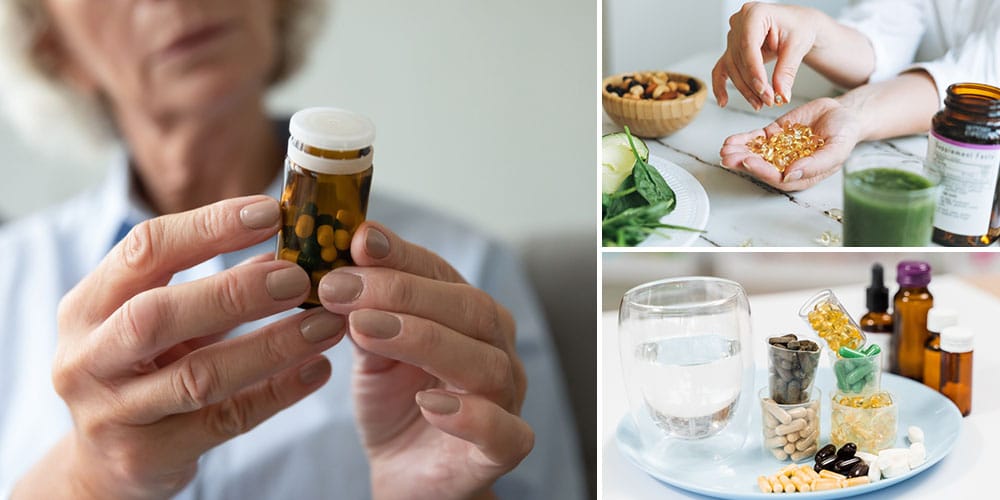
Are Your Supplements Fake?
If you’ve ever spent your hard-earned money on a supplement or supermarket-bought tea, I’ve got bad news for you. You’ve probably been scammed… and taken something that was probably entirely made from non-herbal ingredients.
I’ve been taking supplements for most of my life.
However, the day I started my own magnesium journey, and it actively made me feel worse than good, I realized I’ve been scammed.
This Is What Happens When You Take Fake Supplements
You won’t believe the depths these people would go to just bury their hands deep into the pockets of hard-working, honest people.
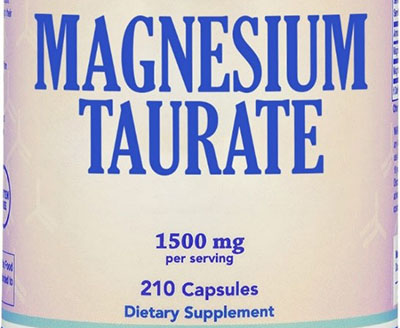 This is the magnesium bottle I got. You can see below the name it says 1500 mg per serving.
This is the magnesium bottle I got. You can see below the name it says 1500 mg per serving.
Now, for reference, the RDA (The Recommended Dietary Allowance) for adults 19-51+ years is 400-420 mg daily for men and 310-320 mg for women.
So that’s red flag number 1. This amount is almost 4 times the amount any regular person should be getting within a day. You see, brands like this one do more harm than good and they’re actively stopping you from getting an adequate amount of magnesium.
Now, let’s take a deeper look at the back of the label.
A typical magnesium supplement has two key components.
The first is Elemental Magnesium, the amount of pure magnesium in your capsule, and the second is whatever ingredient it is bound to. In this case, it’s taurine.
When you combine magnesium with taurine, you get magnesium taurate. What you should be concerned about is just how much elemental magnesium is actually in the product. As you can see in the screenshot I attached of the Supplement Facts for this particular bottle, there’s only 120 mg of actual magnesium in this product.
So if you took this daily, the amount you’d be getting is much lower than the recommended daily intake. In fact, it’s only about a third.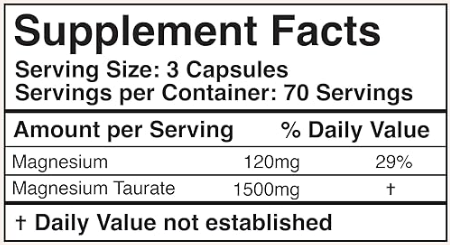
But, by adding magnesium taurate they trick you into thinking that you’re taking a much more potent pill so that you’ll spend more of your hard-earned money on them.
This is precisely the reason why people take magnesium and then they get zero results because they’re barely getting enough to make them function.
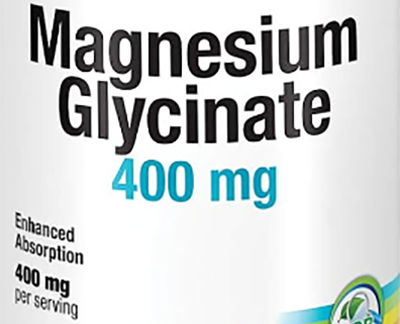 Let’s take a look at another example.
Let’s take a look at another example.
This pill says it has 400 mg of magnesium glycinate per capsule so you would think that taking just one capsule will give you the exact amount you need for daily health.
But when we look behind the label, we see that the actual amount of elemental magnesium is 60 mg.
That is 14% of your daily recommended amount. Crazy.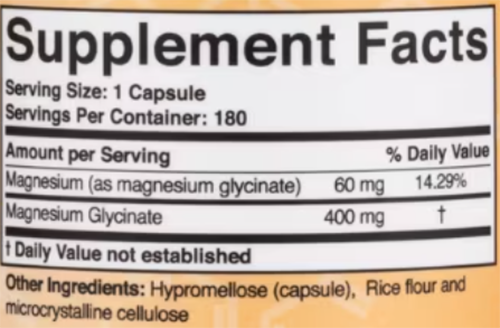
In reality, you’d have to take up to 7 of those pills every day just to get the bare minimum amount of magnesium you need to function on a daily basis.
Let me tell you, an adequate amount of magnesium can completely turn your life around.
I went from barely sleeping at night (like barely getting 2-3 hours of rest), while having anxiety and panic attacks to how I’m feeling right now. I sleep better, I’m always well-rested, go to bed easily, and I barely get joint pains anymore. It also offers a lot of relief from headaches or migraines.
But this time, I didn’t buy the magnesium supplements. I made them myself, but with Dr. Nicole Apelian’s help.
I took her class on herbalism, The Lost Remedies Academy, and she guided me every step of the way.
Some of the remedies from the Academy that I really want to make are:
- Easy 2-Ingredient Painkiller
- The Antibiotic In A Jar (a recipe from Nicole’s grandma)
- Liquid Xanax
- Redbull of the Woods
- The Amish Aspirin
- Herbal Migraine Killer
- DIY Liquid Calcium
- The Hair-Growth Serum
I made a collage that I added to this article so you can check out the ones that I made.
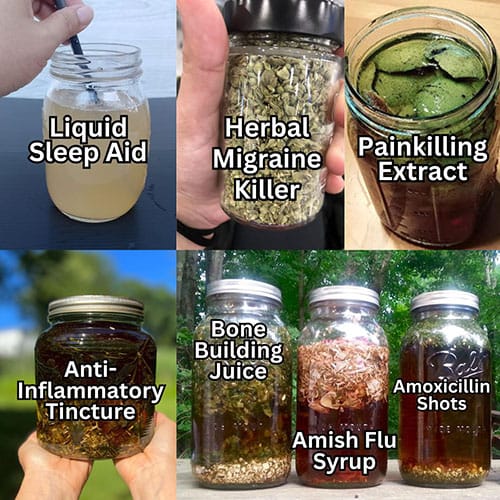 At the end of the course, Nicole surprised me by awarding me a beautiful diploma, of which I attached a photo below.
At the end of the course, Nicole surprised me by awarding me a beautiful diploma, of which I attached a photo below.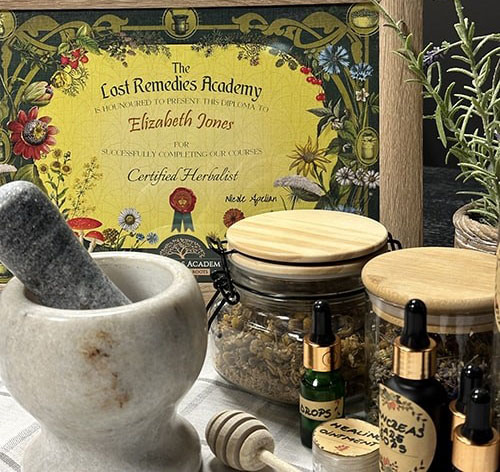
You can check out the classes The Lost Remedies Academy here.
6 Red Flags to Watch Out For When Buying Vitamins & Supplements
1. Don’t trust the labels that don’t tell you how much you’re getting
Terms like ”proprietary blends” and ”proprietary formulas” can be highly misleading because the pill bottle might contain only a small amount of they key ingredient you’re actually looking for. If a company uses these specific terms, it allows them to use less of those specific ingredients you think you’re buying, so you’re not actually paying for what you think you are. To avoid this, try getting products that list the amount of each ingredients CLEARLY.
2. Meaningless claims
If the supplements you have purchased have printed ”Clinically Tested Ingredients” or ”Tested by an FDA Approved Laboratory” on them, it’s best you throw them away.
Tested by an DFA Approved Laboratory – the FDA doesn’t approve laboratories. However, a laboratory can ”register” with the FDA which offers them further accreditations, but that’s about it.
Clinically Tested Ingredients – this doesn’t guarantee effectiveness. The dosage might be wrong, the ingredient might not even present in effective amounts, or even the combination of ingredients could be untested.
Pharmaceutical Grade – this is a meaningless title for most supplements, and there is no reason to pay more on products if they have it printed on their labels.
3. They claim to treat or heal a disease
Supplements cannot legally claim that they can treat, heal, or diagnose a disease. Just make sure you’re wary of products that make such claims.
There are some cases, however, in which supplements can mention they reduce disease risk if it’s FDA-approved and scientifically proven – like psyllium husk and heart disease risk, or EPA/DHA and coronary heart disease – however, the evidence is inconsistent for both of these.
4. Gummy formulas
Many ingredients are much less stable in gummies than in tablets and capsules, meaning the ”painkilling” gummies you get from your local store aren’t even able to target your pain, let alone manage it.
5. Watch out for high doses in supplements
Supplement labels won’t ever warn you about the potential harm that excessive amounts of certain ingredients can do.
Ditch minerals or vitamins listed as exceeding 100% Daily Value (DV), since this is more than you need from your entire diet and can be dangerous. Tolerable Upper Intake Levels or ULs are the upper limits which exist for most vitamins and minerals, but once again are not shown on labels. Never take more than the UL unless you’re under serious medical supervision.
6. How to find truly tested products
Look for specific seals of approval from reputable organizations. Avoid those vague claims like ”quality-tested” or ”third-party tested” without correctly identifying the tester. Don’t trust influencer reviews either. Many times, they are paid by the supplement company to promote them.
As you’ve seen, the supplements and medicinal plants you find in supermarkets or pharmacies can’t really compare with the medicine you make yourself.
The remedies that you make from your backyard plants or those you pick directly from nature are much more powerful and you know exactly what went in them. That’s why a class like Dr. Nicole Apelian’s The Lost Remedies Academy could put an end to all of your second guessing.
I invite you to check out the Academy here. The spots are filling up quickly, so there aren’t that many left!

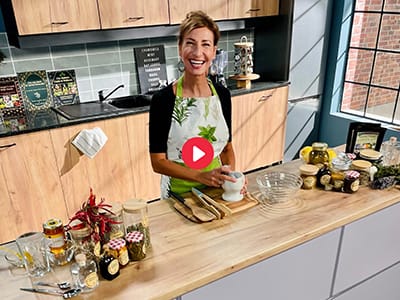
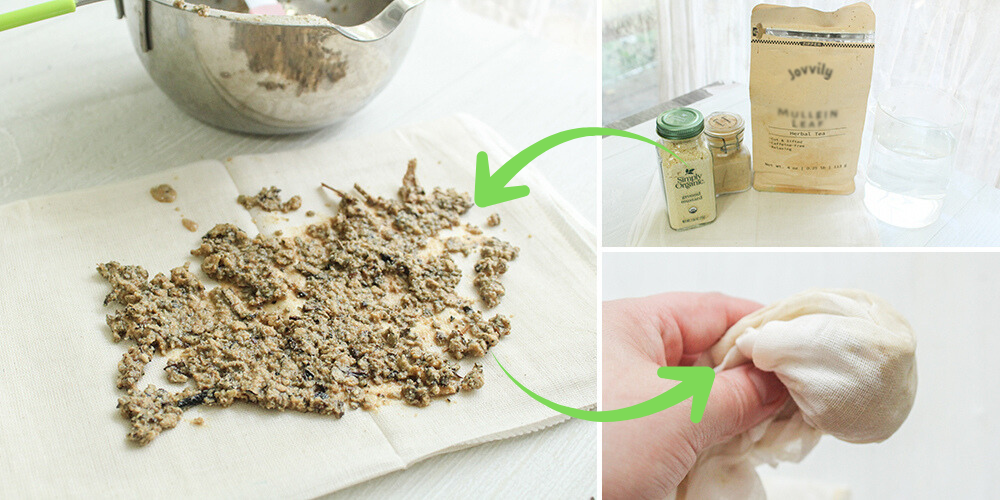

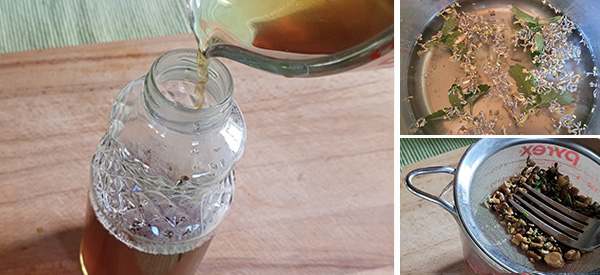
wow this article is super insightful. thank you for posting lost herbs team!
Hi Mark,
Thank you for your comment!
We’re happy to hear the article is helpful to you.
Many blessings and good health!
I believe I’m in the same boat as the author of this article. I was in disbelief but then I turned my magnesium supplements to read the label and… unfortunately it’s all true.
how are they able to get away with this?
This is one of the best articles I have seen. I completely agree. It has taken me 4 years and the loss of several hundred $$ to find out. I am thoroughly fed up with the e-market charlatans who ramble on and on selling their phony cures. I have been following the advice from Nicole for about five years now and it seems to be working fairly well, but I know I could go further and do better. I have a few of her books. What I would really like to do is meet Nicole in person and have a real discussion. I want to do everything straight from Mother Nature. I have 8 acres in the woods that has everything I need to flourish; creek, spring, virgin soil and a lot of the plants you people write about. I have tried to contact her several times, but have yet to receive a reply. I have some very ambitious and extreme life ambitions.
Are you taking advantage of her Lost Remedies Academy like the author of this article did? I too highly recommend doing so. It allows you to work at your own pace too. Which for me is a really good thing. But I’ll likely be revisiting some of it since I don’t get time often. Although I do understand wanting to meet her in person. Oh and I’m very envious of your 8 acres, that would be so awesome.
My place is truly a treasure, with great potential. I visited a agricultural “museum” a few years, and was amazed with what was done with that piece of land. I am too old to duplicate it, and I could not do it myself. Trying to find assistance is virtually impossible. They talk a good story, but no one has come forward to participate. I have offered “free” use of the land to anyone who would like to grow exotic nutritional plants. My whole approach is the prevention of sickness, ills, pain, and deterioration of the body as the aging process takes over.. An ounce of prevention is better than a ton of cures.
Hi Alfie,
Thank you so much for taking the time to share that!
We are happy to hear Nicole’s books have helped you so much over the years.
Many blessings and good health!
The title mentioned supermarket tea but did expand on that at all. What is wrong or missing from supermarket teas?
Hi Helen,
Thank you for your comment!
Some of the teas you get from the supermarket are also counterfeit and do not contain the herbs they claim to contain. Several investigations have proven that, just like supplements, they are contaminated with substances including rice, beans, pine, citrus, asparagus, primrose, wheat, houseplant and wild carrot. In many cases, unlisted contaminants were the only plant material found in the product samples. Make sure you follow the instructions in the article when purchasing herbal teas from local stores that are not certified herbal shops.
Many blessings and good health!
Not just the contents … google the tea bags themselves….. made with glue amd carcinogens !
does Nicole teach in the academy how to make a drink or tincture to replenish your magnesium levels?
Hi Riley,
Thank you for your question.
Yes, the Adaptogenic Elixir is a magnesium-rich drink you can have regularly.
Many blessings and good health!
I purchased Magnesium Mist from ‘ComeAliveHerbals’ on tiktok. Ingredients: filtered water, Magnesium chloride, lavender, geranium, cedarwood, ylang ylang & patchouli. It is a spray that you use up to 4x a day. I haven’t noticed any difference, but I usually only spray it once, since I find the smell a bit offensive. Has anyone else tried this spray from ComeAliveHerbals?
So informative its not as it seems on bottle
Thank you dr for the excellent advice !!